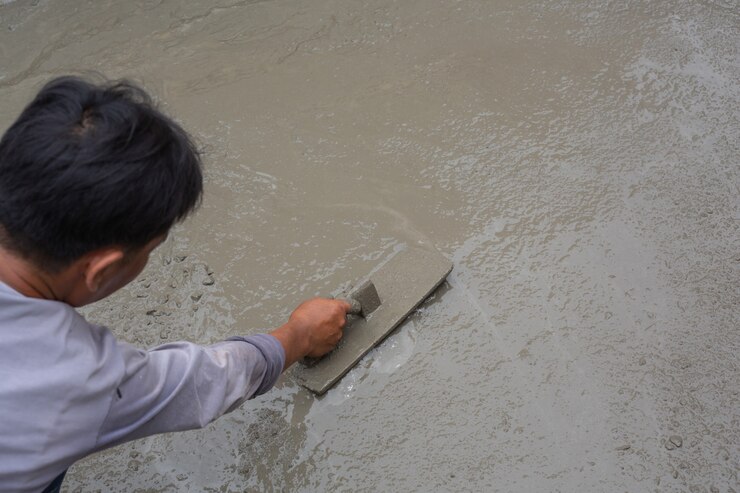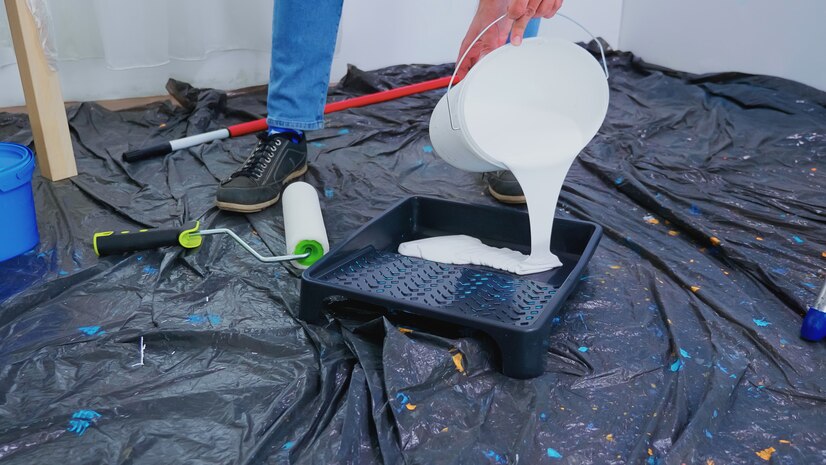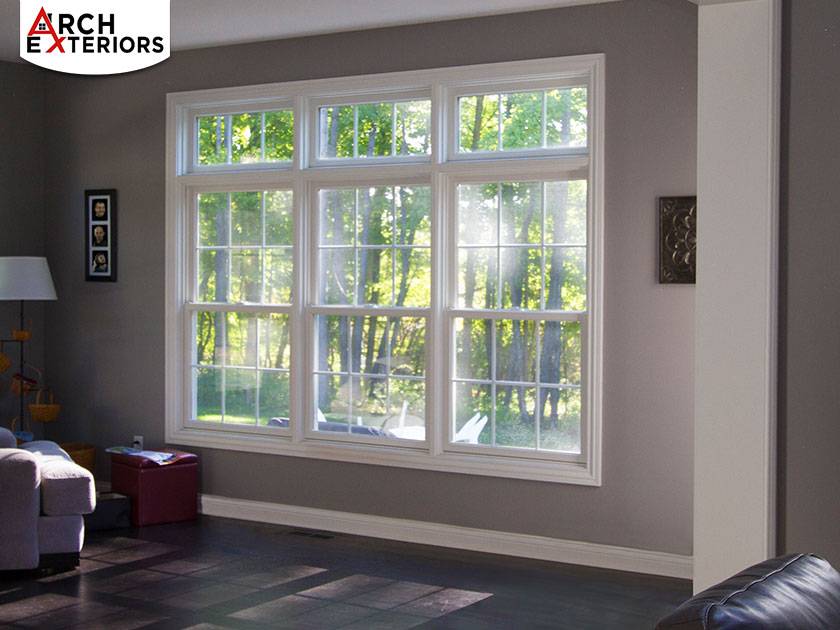No, home insurance typically does not cover basement waterproofing. However, homeowners may check with their insurance provider for specific coverage options.
Welcome to our comprehensive guide on home insurance coverage for basement waterproofing. One common concern for homeowners is whether their insurance policy covers the cost of waterproofing their basement. We will delve into the intricacies of home insurance policies and provide you with insights on what to expect when it comes to basement waterproofing coverage.
While home insurance typically does not cover basement waterproofing as a standalone feature, there may be certain circumstances in which insurance providers offer coverage. It is important to understand the limitations of your home insurance policy and how it relates to basement waterproofing to ensure you are adequately protected.
Understanding Home Insurance Coverage For Basement Waterproofing
Understanding Home Insurance Coverage for Basement Waterproofing
What Is Basement Waterproofing?
Basement waterproofing refers to the process of preventing water from entering a basement or any below-ground level of a property. It involves various techniques and solutions that are designed to keep water out and maintain a dry, moisture-free basement.
Importance Of Waterproofing For Basements
Water damage can be a nightmare for homeowners, especially when it affects the basement. A wet basement can lead to a variety of problems, including mold growth, structural damage, and the loss of personal belongings. Waterproofing your basement not only protects your investment but also ensures a healthier living environment for you and your family.
How Does Home Insurance Come Into Play?
When it comes to basement waterproofing, homeowners often wonder if their insurance policy covers the costs. It’s essential to understand that every insurance policy is different, and coverage can vary. Some insurance policies may include coverage for basement waterproofing, while others may not.
Typically, home insurance covers sudden and accidental water damage caused by burst pipes or plumbing issues. However, it may not cover the costs of preventative measures, such as basement waterproofing, unless specifically stated in the policy.
Therefore, it’s crucial to review your home insurance policy carefully and consult with your insurance provider to understand the extent of your coverage. They can provide you with detailed information about what is and isn’t covered regarding basement waterproofing and give you peace of mind knowing that your investment is protected.

Types Of Home Insurance Policies
Types of Home Insurance Policies
Before diving into the specifics of whether or not home insurance covers basement waterproofing, it’s important to understand the different types of home insurance policies available. Homeowners have a few options to choose from, each offering varying levels of coverage.
H3different Types Of Home Insurance Policies/h3
Here are the main types of home insurance policies:
- HO-1: Also known as the Basic Form Policy, this policy offers limited coverage and protects against a select number of perils, such as fire and theft.
- HO-2: Known as the Broad Form Policy, this type of insurance provides coverage for a wider range of perils than HO-1, including falling objects, water damage, and more.
- HO-3: The Special Form Policy, or HO-3, is the most common form of home insurance. It covers the structure of the home and personal belongings against all perils, except those explicitly excluded in the policy.
- HO-4: Also called the Tenant Form Policy or Renters Insurance, this coverage is for tenants and protects personal belongings rather than the structure itself.
- HO-5: The Comprehensive Form Policy, or HO-5, provides the broadest coverage available for homeowners, including both the dwelling and personal belongings.
- HO-6: Designed for condominium owners, the Condo Form Policy, or HO-6, offers coverage for personal belongings and improvements made to the unit.
- HO-8: Specifically for older homes, the Modified Coverage Form Policy, or HO-8, provides enough coverage to repair or rebuild the property using similar materials and methods.
H3coverage Options For Basement Waterproofing/h3
Now, let’s explore whether basement waterproofing is covered under home insurance. In most cases, home insurance policies do not cover the cost of basement waterproofing as a preventative measure to protect the home against water damage. However, there are certain scenarios where coverage might be available.
Some policies may cover basement waterproofing if the water damage is a result of a covered peril, such as a burst pipe or severe storm. It’s important to review the details of your specific policy to understand if and how basement waterproofing is covered.
Additionally, some insurers may offer optional endorsements or riders that can be added to the policy to provide additional coverage for basement waterproofing. These endorsements typically come at an additional cost but can provide peace of mind for homeowners concerned about potential water damage.
H3the Role Of Deductibles And Coverage Limits/h3
When it comes to basement waterproofing and insurance coverage, it’s important to consider the role of deductibles and coverage limits. Deductibles are the amount a policyholder must pay out of pocket before insurance coverage kicks in. Policyholders can usually choose their deductible amount, with higher deductibles resulting in lower insurance premiums.
Coverage limits refer to the maximum amount an insurance policy will pay out for covered damages. It’s crucial to understand the coverage limits of your policy and whether they are sufficient to cover the cost of basement waterproofing or any resulting damages.
In conclusion, while basement waterproofing is typically not covered under standard home insurance policies, it’s essential to review your policy and consider optional endorsements for additional coverage. Additionally, understanding your deductible and coverage limits can help determine the level of protection and financial responsibility you have in the event of basement water damage.
Assessing Coverage For Basement Waterproofing
When considering home insurance coverage for your property, it’s important to understand the extent of protection provided for various situations. Basement waterproofing is a crucial aspect of maintaining a dry and structurally sound home, but does your home insurance cover the costs associated with this necessary task? Taking the time to assess your coverage and understand the limitations of your policy can help you make informed decisions about protecting your home and budget.
Examining Your Current Home Insurance Policy
Before delving into the specifics of basement waterproofing coverage, it’s essential to review your existing home insurance policy. This document outlines the protection you have against various risks and perils, including damage to your home and its contents. Look for relevant sections, such as “water damage” or “water intrusion,” that may indicate the inclusion of basement waterproofing in your coverage. Pay attention to the language used to describe the coverage to identify any limitations or exclusions.
Understanding Policy Exclusions And Limitations
While your home insurance policy may provide coverage for some instances of water damage, it’s essential to fully understand the exclusions and limitations that could apply to basement waterproofing. Insurance companies often exclude coverage for certain causes of water damage, such as flooding resulting from external factors like heavy rain or natural disasters. Additionally, your policy may have limitations regarding the types of repairs or preventative measures covered. Familiarizing yourself with these details will help you gauge the extent of coverage available for basement waterproofing.
Reviewing Additional Coverage Options
If your current home insurance policy has limited or no coverage for basement waterproofing, you may have the option to enhance your protection through additional coverage. Speak with your insurance provider to inquire about endorsements or riders that can be added to your policy to cover this specific need. These options may vary based on your location and the insurance company you are working with, so it’s important to ask for tailored recommendations. Consider the cost of adding this coverage against the potential expenses you could face if your basement experiences water damage.
Remember, each insurance policy is unique, and the coverage available for basement waterproofing will vary. Taking the time to assess your current policy, understand the exclusions and limitations, and explore additional coverage options will empower you to make informed decisions about protecting your home from water damage.
Making A Claim For Basement Waterproofing
When it comes to protecting your home, having the right insurance coverage is crucial. But does home insurance actually cover basement waterproofing? It’s a question that many homeowners ask, especially those who have dealt with the costly and disruptive consequences of a water-damaged basement. In this blog post, we’ll explore the topic of basement waterproofing and whether it is typically covered by home insurance policies.
Steps To Follow When Making A Claim:
If you find yourself in a situation where you need to make a claim for basement waterproofing, there are important steps you should follow to ensure a smooth and successful process. By adhering to these steps, you can increase your chances of getting the coverage you need to address the issue.
- Notify your insurance company: The first step is to contact your insurance company and inform them about the situation. It is important to do this as soon as possible to initiate the claims process.
- Provide necessary details: During the initial conversation with your insurance company, be prepared to provide them with all the relevant details regarding the basement waterproofing issue. These may include the cause of the problem, any previous incidents, and whether you have taken any preventative measures.
- Schedule an inspection: In most cases, the insurance company will send an adjuster to assess the situation and determine the extent of the damage. It is important to cooperate fully with the adjuster and provide them with all the necessary access to the affected areas.
- Obtain multiple quotes: Depending on the severity of the issue, it may be necessary to obtain multiple quotes from reputable basement waterproofing contractors. This will help the insurance company understand the cost of the repairs and reach a fair settlement.
- Keep detailed records: Throughout the process, it is important to keep a detailed record of all communication, including phone calls, emails, and letters, with your insurance company. This will help provide evidence in case of any disputes or discrepancies.
Required Documentation And Evidence:
When filing a claim for basement waterproofing, it is essential to provide your insurance company with the required documentation and evidence to support your case. This includes:
- Photos or videos: Document the extent of the damage by taking clear and detailed photos or videos of the affected areas. This visual evidence can help support your claim.
- Repair estimates: Obtain written estimates from reputable basement waterproofing contractors. These estimates should include a breakdown of the costs involved in addressing the issue.
- Receipts and invoices: Keep records of any expenses related to the basement waterproofing, such as invoices for repairs, equipment rentals, or materials purchased.
- Any incident reports: If the water damage was caused by a specific incident, such as a storm or a burst pipe, it is important to obtain any incident reports or documentation related to that event.
Dealing With Insurance Adjusters:
During the claims process, you may have to interact with insurance adjusters who will assess the damage and determine the coverage. It is important to approach these interactions with a proactive and cooperative attitude.
- Provide access: Make sure to grant the insurance adjuster full access to the affected areas so they can properly assess the damage.
- Be honest and thorough: Answer all questions from the adjuster honestly and provide them with all the necessary information they request. This will help them accurately assess the situation.
- Maintain records: As mentioned before, keep detailed records of all interactions with the insurance adjusters, including their names, contact information, and the information they provide.
- Request written communication: Whenever possible, ask for written communication from the insurance adjusters to ensure you have a record of their statements and any agreements reached.
Alternatives To Home Insurance Coverage
While home insurance provides crucial protection for your property, it’s important to understand that it may not cover all expenses related to basement waterproofing. Luckily, there are alternative options to consider when it comes to covering the costs of waterproofing your basement. Exploring these alternatives can help ensure that your investment in a dry and protected basement stays intact.
Exploring Other Options For Covering Basement Waterproofing Costs
When faced with the need for basement waterproofing, homeowners often wonder if their separate flood insurance policy covers these costs. Unfortunately, the coverage provided by a flood insurance policy generally focuses on the restoration of your property after a flood event rather than the preventative measures of waterproofing. Therefore, it’s unlikely that your flood insurance policy will cover the costs of basement waterproofing.
Does A Separate Flood Insurance Policy Cover Basement Waterproofing?
The purpose of a separate flood insurance policy is mainly to offer financial assistance for repairing or replacing your property’s structure and contents damaged during a flood. As basement waterproofing falls under the preventative measures category and not restoration, it is typically not covered by a flood insurance policy. While these policies can offer invaluable support in flood-related situations, it’s essential to explore other avenues when seeking coverage for basement waterproofing.
Self-funding Your Waterproofing Projects
When home insurance and flood insurance fall short, homeowners have the option to self-fund their basement waterproofing projects. While this may require a significant upfront investment, it can provide peace of mind and long-term cost savings. By financing the waterproofing project yourself, you have full control over the quality and extent of the work, ensuring the most effective protection for your basement.
When considering self-funding, it’s crucial to assess the overall benefits and potential risks. Investing in professional basement waterproofing services can prevent future water damage, mold growth, and structural deterioration. In the long run, these preventive measures can save you from costly repairs and maintain the value of your property.
It’s important to note that each homeowner’s situation is unique, and different factors may influence the decision to pursue self-funding. Consulting with a reputable waterproofing specialist or contractor can provide valuable insights and help you make an informed decision based on your specific needs and budget.
Frequently Asked Questions Of Does Home Insurance Cover Basement Waterproofing
How Much Value Does A Waterproof Basement Add To Your Home?
A waterproof basement adds significant value to your home by protecting it from costly water damage. It enhances the overall property worth, ensuring a safe and dry living space. A basement with waterproofing increases the potential for additional usable square footage and appeals to potential buyers.
What Is The Best Price For Basement Waterproofing?
The best price for basement waterproofing can vary depending on factors such as the size of the basement, the extent of the damage, and the waterproofing method used. It is recommended to get quotes from multiple contractors to compare prices and services offered.
Does Homeowners Insurance Cover Hydrostatic Pressure?
Yes, homeowners insurance usually covers damage caused by hydrostatic pressure.
Does Homeowners Insurance Cover Wet Drywall?
Yes, homeowners insurance typically covers wet drywall caused by a covered peril, such as a burst pipe or plumbing leak. However, it may depend on the specific policy and circumstances, so it’s important to review your insurance policy and contact your insurance provider for accurate information.
Conclusion
Overall, it’s crucial to understand the extent of coverage that your home insurance provides for basement waterproofing. While some policies may include it as part of their coverage, others may require a separate endorsement or rider. Therefore, it’s essential to review your policy carefully and consult with your insurance provider to ensure that your basement waterproofing needs are adequately protected.
Remember, a little proactive research can save you from potentially costly surprises in the future.




